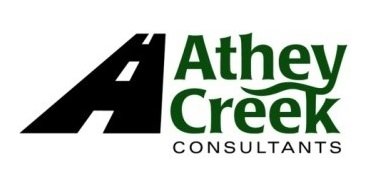Standards and Architecture Projects
Athey Creek Consultants creates warrants and standards to assist transportation agencies in determining technology deployment needs and apply industry accepted practices in alignment with national, state, and regional intelligent transportation system (ITS) and connected and automated vehicle (CAV) architectures.
-

Open Architecture Tolling
In 2017, the Oregon Legislature directed the Oregon Department of Transportation to use technology to relieve congestion and generate revenue through the implementation of tolling on Interstates 5 and 205 in the Portland Metro area. This project engaged several companies to identify users’ choices on how to pay tolls through toll tags, GPS devices, smart phones, or embedded vehicle telematics and researched how these options could be used to transfer tolling information to provide payment to the State. Athey Creek as a subconsultant on this project assisted with technology systems and integration. Athey Creek defined three options for Open Tolling: Open Concept, Traditional Concept, and Hybrid and collaborated on Systems Engineering and Architecture. Athey Creek researched various reporting and payment options, created the requirements for an open architecture tolling system, cultivated the private sector, and made recommendations on the project costs and schedule. The project team used the system requirements and private sector acceptance to determine the cost and timing of an open architecture system. Athey Creek presented findings in a summary report and proposed an implementation schedule.
-

Traveler Information for Connected and Autonomous Vehicles (TICAV)
Athey Creek researched the need and feasibility of using existing Minnesota Department of Transportation (MnDOT) resources to generate and share traveler information to CAVs. The project featured extensive engagement of industry to determine automaker and third parties’ needs and uses for traveler information, as well as their preference for how to receive it, including data standards. Athey Creek supported MnDOT in exploring various options for consolidating data and generating messages for CAVs, including the options for state, private and national data exchange platforms. In its final stage, the project is examining ways for MnDOT to improve its collection and sharing of traveler information for all travelers while readying the state for a CAV future.
-

Freight Permit Harmonization
Athey Creek supported the American Association of State Highway and Transportation Officials (AASHTO) by conducting research on permit data harmonization to identify and model best practices in the collection and display of commercial vehicle permit data. The objective of this project was to promote more harmonized permitting across states. The result of the project was a standardized permit template for over dimensional commercial vehicle permits that harmonized terminology and permit appearance in a format usable by all states. AASHTO utilized the results to communicate the standard permit approach to its state department of transportation members.
